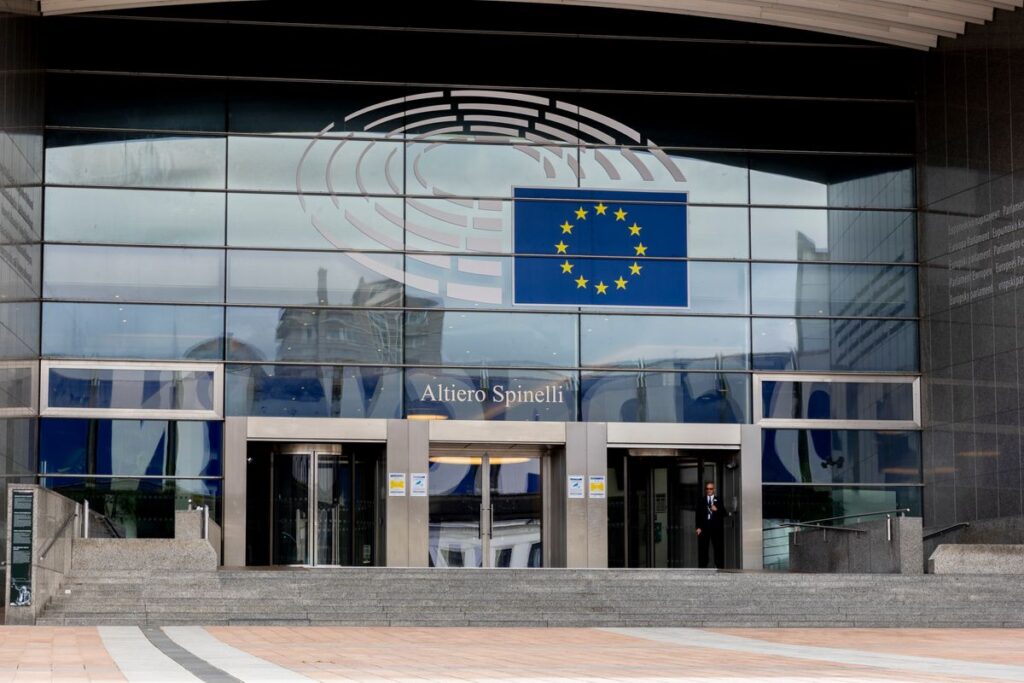The revisions introduce measures to create binding targets to reduce food and to establish extended producer responsibility schemes for textiles (tEPR).
The vote follows an agreement reached between Parliament and Council negotiators in February 2025.
Parliament’s endorsement now clears the way for the new rules to be published in the EU’s Official Journal.
The WFD does not apply to the UK since its departure from the EU.
Food waste targets
Under the updated legislation, EU Member States will be legally required to meet two separate food waste targets for 2030:
- A 30% reduction for retail, restaurants, food services and households
- A 10% reduction for the food processing and manufacturing sector
Progress will be measured against baselines established from waste levels recorded between 2021 and 2023.
Textiles EPR
On textiles, the directive introduces a mandatory tEPR system across the EU.
Under the existing WFD, EU countries were required to set up the separate collection of textiles by 1 January 2025.
Member estates will now be required to establish schemes to cover the cost of collecting, sorting and recycling textile within 30 months of the directive entering into force. Micro-enterprises will be granted an additional 12 months before obligations apply.
The measures will cover a wide range of products including clothing, accessories, footwear, blankets, bed linen, kitchen linen, curtains and hats. Member States will also have the option to extend the rules to mattresses.
Dawn Dungate, Specialist Textile Reuse and Recycling Consultant, told Letsrecycle.com: “The European Parliament’s vote for mandatory EPR on textiles is a hugely positive step forward. It promises much-needed support for Europe’s reuse and recycling sector, which has long struggled with the growing volume of low-quality textiles entering the market without the infrastructure to manage them responsibly.
“However, this ruling does not apply to the UK – and that should concern us. The UK government must act faster than the EU’s 2028 timeline, and crucially, ensure that any funds raised through EPR are ringfenced for the textile sector itself.
“Without this, we risk losing vital businesses who manage one of the most difficult waste streams – textiles can get wet, dirty, and contaminated in ways other materials don’t.
If we are serious about becoming a truly circular economy, we need urgent commitment and investment now – not later.”
James Beard, Head of Voluntary Compliance at Valpak, added: “With the EU generating more than 12 million tonnes of textile waste annually, this legislation will accelerate the move towards circular business models and more sustainable consumption.”
“That said, the requirements will bring added costs and operational pressures for producers at a time when many are already under strain. The challenge will be to balance these new financial obligations with the need to remain competitive.
“This regulatory shift should not be seen as a compliance burden but as a catalyst for innovation.”
‘Missed opportunity’
Environmental NGO Zero Waste Europe (ZWE) welcomed the introduction of tEPR as a key milestone, but expressed disappointment that “Member States have blocked more ambitious measures” in the final agreement.
ZWE highlighted that Member States had blocked stronger policy levers during negotiations, and criticised the 30-month transposition period for textiles as “an unnecessary delay.”
The organisation also noted the absence of binding targets for textile collection, reuse and recycling.
Andrea Veselá, Textiles Officer at ZWE, commented: “It can sometimes be easy to overlook the impact of EU decisions for local communities; however, we see that municipalities, as well as sorters, already struggle to meet the separate collection obligation for textiles without further funding from EPR.
“ZWE recommends EU member states swiftly introduce EPR schemes that support prevention and best practices for waste collection, sorting, and local reuse.”
On food waste, ZWE said the agreed targets fall short of the EU’s commitment under the UN Sustainable Development Goal 12.3, which calls for a 50% reduction of food waste across the entire supply chain by 2030.
Theresa Mörsen, Waste and Resources Policy Manager at ZWE, added: “EU-wide binding targets guarantee fairness among Member States and provide clear guidance for food businesses and investors in circular solutions for the years to come.
“This revision is, unfortunately, a missed opportunity to fully align the food sector with the EU climate goals.”






Subscribe for free